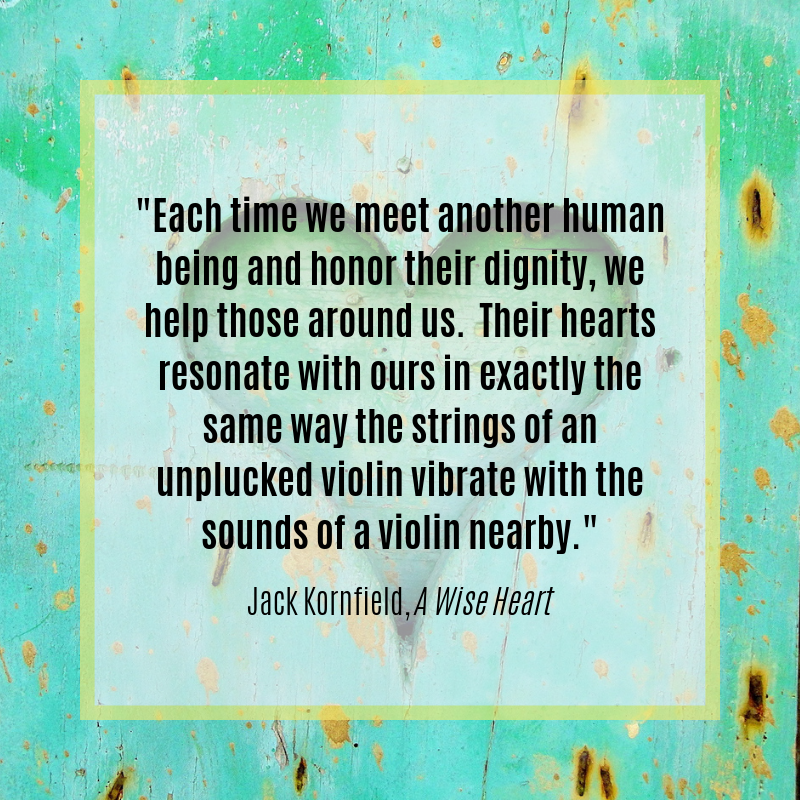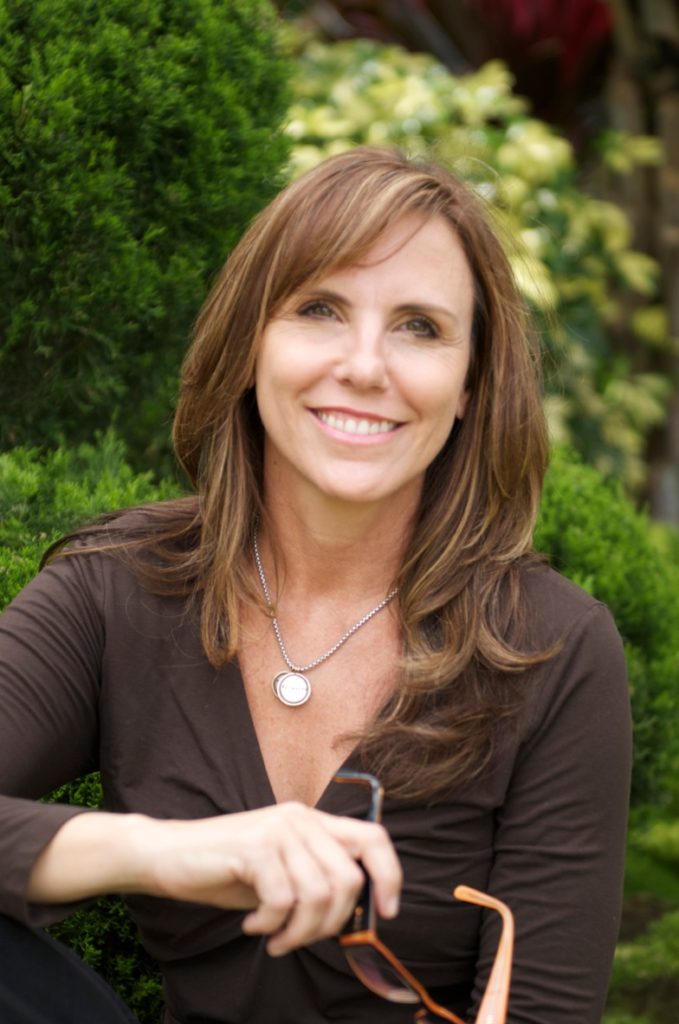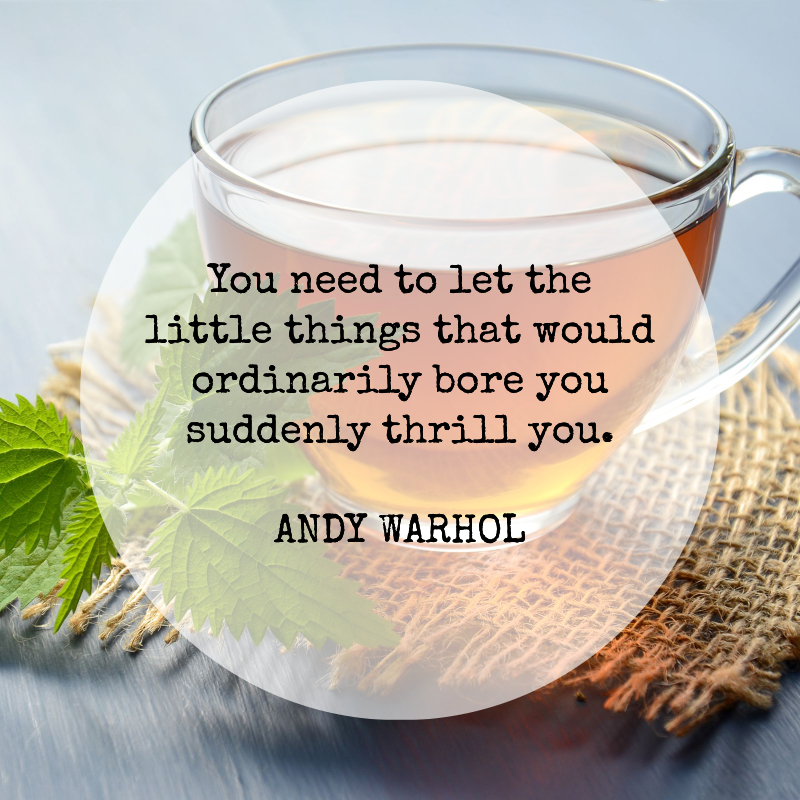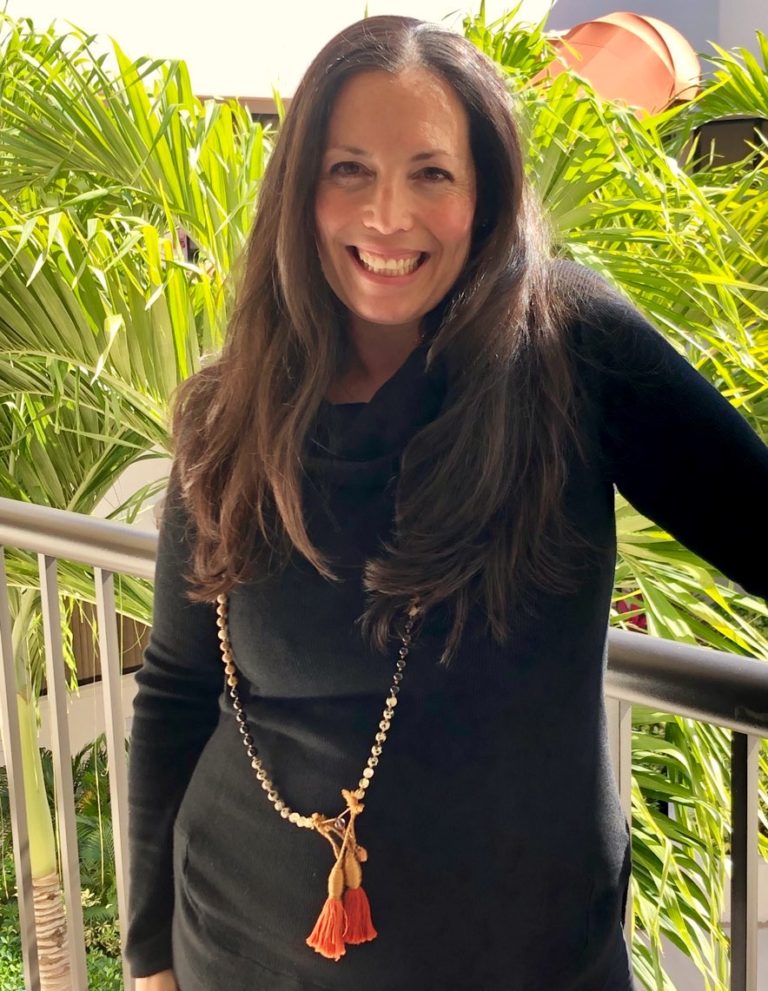
Jack Kornfield, a teacher and author in the Vipassana movement, acknowledges in the above-mentioned quote a phenomenon called “limbic resonance”, a state in which two mammals become attuned to each other’s emotional states. Modern neuroscience and the neurobiology of attachment are beginning to uncover the importance of interconnectedness. Combined with psychology, we now know the ancient practice of mindfulness combined with loving awareness has the ability to enhance not only our wellbeing, but also that of our fellow human.
We all have a need to be seen and cared about without threat or judgment. In fact, this need is critical to developing a sense of safety in relationships, as well as a sense of belonging and being loved. We are seeing record numbers of individuals suffering from depression and anxiety. As a therapist and mindfulness practitioner, I feel both deeply concerned and committed to understanding the causes of this profound sadness. A sense of separateness or alienation from other living beings is often at the root of this deepest form of human suffering. Despite the wisdom of unity, that all beings are connected, (even modern quantum physics is confirming this as truth), many people carry a felt sense of disconnection and loneliness.
For those that do not struggle with this particular issue, I invite you to acknowledge that others do feel this way. Using our compassion and understanding, we can validate the experience of another that is suffering. We can actually see their suffering, acknowledge that we see it and sense how it is the same suffering that all humans feel if they are abandoned, chronically lonely, or feel unloved and unseen. When we take time to see others completely, just as they are, we are offering our love and compassion. This offering vibrates in the hearts of others (similar to the violin in the quote) and creates a sense connection. This offers a glimpse of hope.
For those who do feel profoundly disconnected, lonely, or unloved, there is a path of freedom from this suffering. Although it may not be visible from your current vantage point, if you begin to take small mindful steps in your daily life, you will begin to feel some hope. This felt sense of hope is not freedom, but encouragement to take up the path of daily practice.
A teacher once taught that our paths are all littered with the debris of being human. Some piles are enormous and obscure the truth, also known as the path. These piles take great effort and help to clear. This initial clearing can come in many forms, including psychotherapy, spiritual devotion, and meditation training. Sadly, one can live a lifetime under piles of rubbish, blinded from seeing the signs all around them pointing to this perennial truth:
We are all connected. If the pile feels too big, too much, or impossible, just take the first step and get help and support.

Patty Thomas Shutt, founder of Sacred Treehouse, is a licensed psychologist and co-owner of Therapeutic Oasis of the Palm Beaches. Dr. Shutt is passionate about helping others discover the benefits of mindfulness and meditation. She offers Beginner Meditation & Advanced Meditation classes at Sacred Treehouse, in addition to Mindfulness Based Stress Reduction, Mindful Self-Compassion and various book studies throughout the year.


